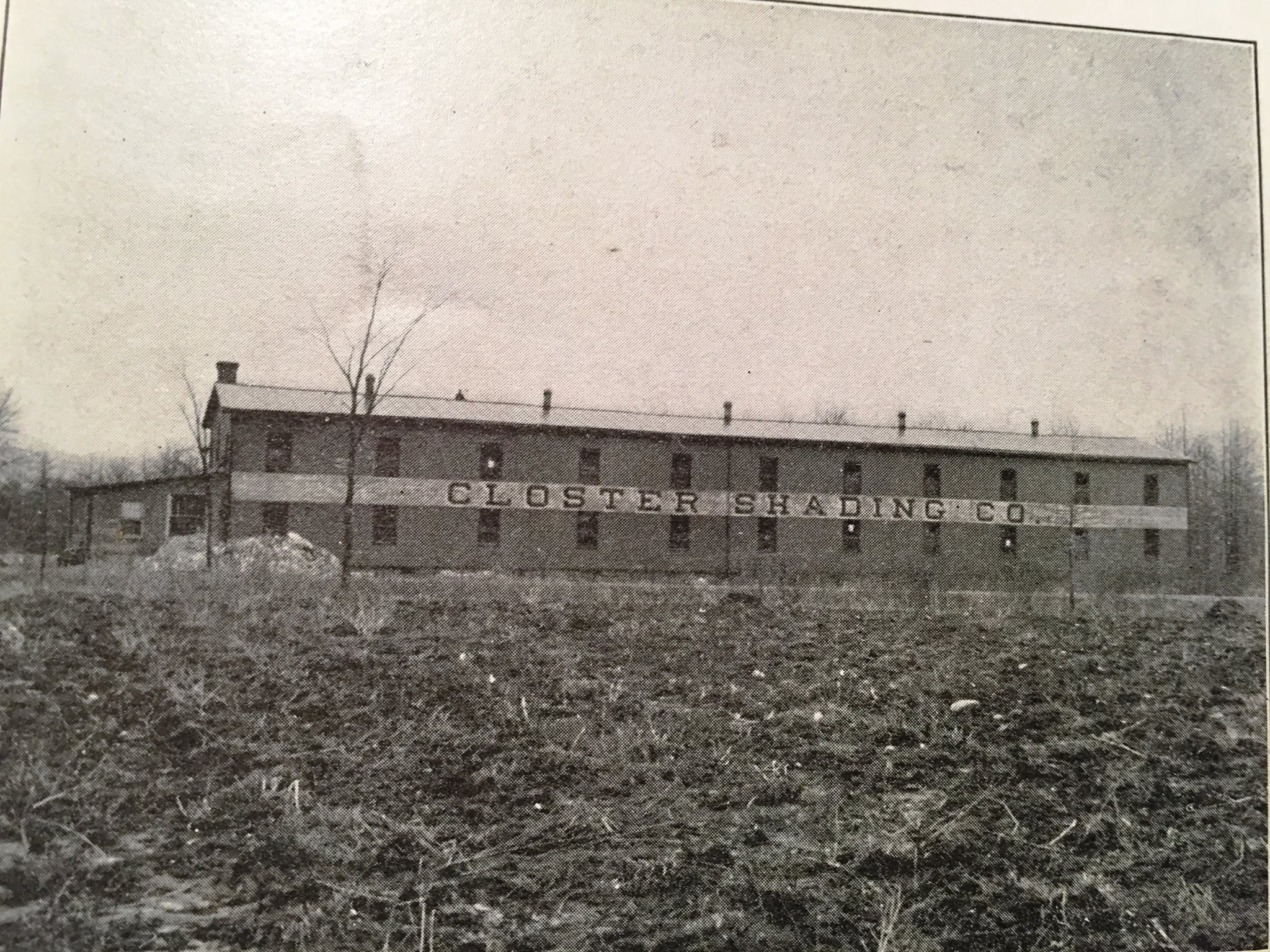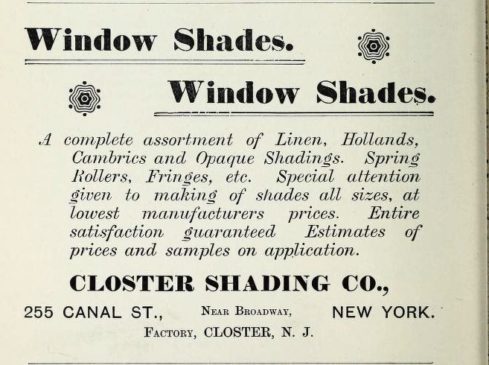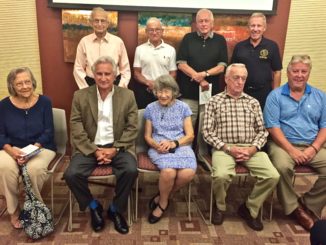
[slideshow_deploy id=’899′]
BY KRISTIN BEUSCHER
OF NORTHERN VALLEY PRESS
The first light industry in Closter was located at the corner of Homans Avenue and Ruckman Road—the Closter Shading Co., a manufacturer of window shades. While the company’s factory was based in rural Closter, it had retail offices located on Canal Street in New York City. In 1900 the Closter Shading Co., under the ownership of Mr. Joseph Schuessler, employed 20 workers and produced about 10,000 shades every two days.
Schuessler himself had a rather interesting history. A native of Austria, he came to the U.S. in 1866 at 22 years of age. By 1900, he was living on Knickerbocker Road near Durie Avenue in Closter with wife Hermina; teenage children; plus one 30-year-old female house servant named Hattie Bonze.

Schuessler shows up in newspaper headlines in October of 1919, when he and another man, John Glaser, also of Closter, were arrested on a charge of attempted extortion.
“It is alleged they sought to induce the Raymond Engineering Company of 309 Lafayette Street to pay them $5,000 hush money by threatening to reveal information they pretended to possess, that the concern had used inferior material in manufacturing ordnance of the government during the war,” the New York Tribune reported on Oct. 28, 1919.
“Glaser was employed at the Raymond plant, being let out when the armistice was signed [ending World War I on Nov. 11, 1918]. The police charge that he told Schuessler the company had been cheating the government, whereupon the pair proceeded to scheme a profit by it.”
Upon his death in 1925, Schuessler left what was left of his estate to the man who helped him in that dark hour.
The New York Times wrote on March 31, 1925, “Joseph Schuessler’s last act of a long life in which he had known success and happiness, and then a series of misfortunes which cost him everything, was to make a will leaving the little property he had to the man who befriended him in the final misfortune of his life. Schuessler’s story was made known in his will, which was filed yesterday in the Surrogates’ Court, leaving everything to William Dean Embree, a lawyer, of 37 Wall Street.”
The Times recounted the tale of Schuessler’s life, from establishing his successful shade business to marrying Hermina, the daughter of a prominent New York family. The little family had prospered and lived happily at Closter for years. Then, things took a darker turn.
“The first misfortune came with the death of Schuessler’s son. Five years later his wife died. Next he lost his daughter. The only person who was kind to him was Hattie Bonze, a housemaid, and he spoke of her affectionately as his daughter, for she took care of him as a daughter might. Then his business failed, and on top of that his home was burned, and Hattie had to live with a neighbor, but every day Schuessler would call to see her.
Then came the aforementioned extortion charge.
“One day word came to Closter that Schuessler, who was then 73 years old, had been arrested in New York,” the Times wrote. “He never went to see Hattie after that, and no one came to help him until he was arraigned before Judge Rosalsky on Jan. 16, 1920 in General Sessions. Then Mr. Embree came to his aid. Through his pleas Judge Rosalsky put Schuessler on probation. He worked every day, according to Mr. Embree, to show that he ‘could come back.’ Schuessler lived at the Salvation Army Headquarters in the Bowery and at the Mills Hotel, to save money.”
In Schuessler’s will, which was made in 1920, he left all of his property–however much was left by that time–to Embree.



